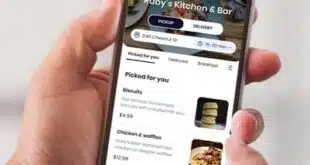Nearly a year after major U.S. rivals introduced mobile wallets, MasterCard Inc. officially entered the market on Monday with a service that aims to trump competing products by being open to a wide range of payment brands and by offering tools that can let third parties develop their own digital wallets.
MasterCard’s PayPass Wallet Services, which relies on the No. 2 card network’s PayPass contactless network, is set to go live in the third quarter in the U.S., U.K., Canada, and Australia with a wide array of banks, merchants, and technology vendors. Participating U.S. banks include Citigroup Inc. and Fifth Third Bank. Merchants include American Airlines, Barnes & Noble, Newegg, and Tigerdirect.com.
Plans call for Wallet Services to support online transactions at first, with physical point-of-sale traffic to follow in the fourth quarter or the first quarter of 2013, Geoff Iddison, group executive for e-commerce at MasterCard, tells Digital Transsactions News. POS transactions will rely on near-field communication (NFC), an interactive, close-range communication technology that competing mobile wallet services like Google Inc.’s Google Wallet and the Isis joint venture put together by the nation’s biggest wireless carriers also use.
Online merchants will feature a PayPass button on their checkout screens that consumers can click to initiate transactions. Ultimately, says Iddison, online consumers will be able to tap a PayPass-enabled card or mobile device to pay, using technology MasterCard introduced with PC chipmaker Intel Corp. last year. “That’s where we’re going with the PayPass wallet,” Iddison says. “It’s a fundamental sea change. We don’t believe anyone will get there before us.”
MasterCard says its Wallet Services will support competing cards from companies like American Express Co., Discover Financial Services, and Visa Inc. It will also offer an application programming interface (API) that will let developers link their existing wallets to what MasterCard is calling the PayPass acceptance network, the 400,000 merchants worldwide that have PayPass terminals. Wallet Services also features a so-called white-label capability that offers tools to allow companies to create their own wallets.
There are limits to Wallet Services’ openness, at least for the time being. Iddison says it will not initially support merchants’ proprietary, loyalty, or other closed-loop cards, for example, though he foresees scenarios in which companies could let customers use branded prepaid cards to fund such payment products. “It’ll come,” he says. “We’ve got an ambitious road map.”
Steve Mott, a payments consultant and long-time critic of digital-wallet initiatives, says the MasterCard entry is on the right track, particularly with its open approach. “It’s not half-bad,” he notes, adding the toolkit allowing third parties to build their own wallets is a good idea. “They’ve made the clearest expression of anybody that [openness] is what they’re all about,” he says. And while MasterCard seems to be late with its wallet entry, Mott doubts that will hurt the product. Both Google Wallet and the Isis wallet product were announced last May, while archrival Visa unveiled its V.me wallet service in November, followed by PayPal Inc. in January. “Being late to the party may be a real advantage, you can overcome the mistakes the other guys make,” says Mott, whose firm, Stamford, Conn.-based BetterBuyDesign, most recently has advised a coalition of merchants looking to build their own mobile-payments service.
But Mott faults MasterCard for its reliance on NFC, a promising technology that has suffered from endless disputes between banks and mobile carriers and a paucity of handsets equipped with NFC chips. MasterCard last week certified a number of handset models for NFC and says more are coming soon, but Mott argues “it’s going to be 2015 and beyond before you see a whole lot of NFC payments.” For that reason, some payments companies, such as PayPal, have de-emphasized NFC in favor of server-based wallets and PIN-based POS authentication.
Mott also contends NFC may be too costly, at least for now. The cost of loading card credentials into NFC-equipped mobile phones, he says, adds anywhere from 10 cents to 20 cents to each transaction for a regular user, a levy merchants are likely to end up having to pay. Those economics, he argues, will depress merchant interest. “Why would a merchant pay an extra 10 to 20 cents and support the cost of the terminal, even if the terminal is subsidized?” he asks.





